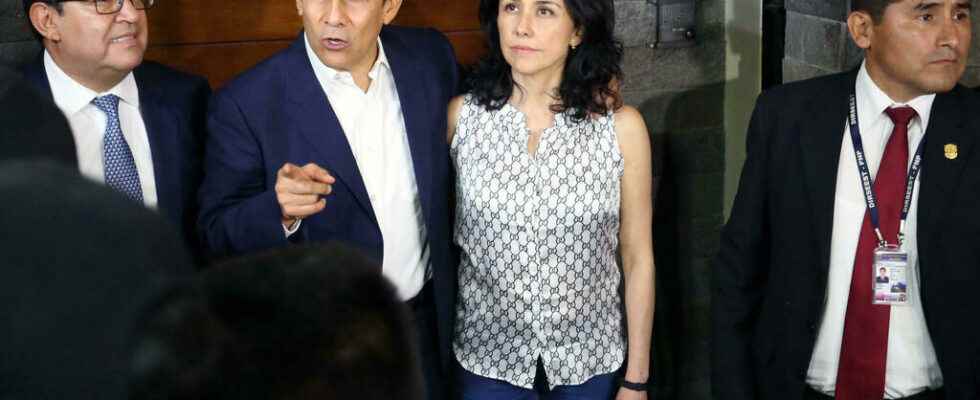Together with his wife, Nadine Heredia, Ollanta Humala is the first Peruvian ex-president to be tried for corruption in the scandal known as “Lava Jato” of bribe payments by the Brazilian company Odebrecht. He is accused of having concealed the origin of the financing of two of his electoral campaigns.
With our correspondent in Quito, Eric Samson
After six years of investigation, it is virtually, pandemic requires, that the trial began Monday, February 21. After the rejection of a request for postponement presented by the defendants’ lawyers, the prosecution intends to prove, this Tuesday, February 22 in the morning, that the electoral campaigns of 2006 and 2011Ollanta Humala were partly financed – respectively – by the Venezuelan government of Hugo Chavez and the Odebrecht company. His star witness is Jorge Barata, ex-superintendent of Odebrecht in Peru, who claims to have paid three million dollars to Ollanta Humala’s campaign.
At the end of his indictment on Tuesday, the prosecution intends to ask for 20 years in prison against the former president and 26 years against his wife Nadine Heredia. He also demanded the dissolution of the Peruvian Nationalist Party, founded by Ollanta Humala. Nine other people are also in the dock, including the brother and mother of the former first lady. Nadine Heredia is accused of having camouflaged the illegal contributions of Odebrecht by buying real estate in complicity with her family.
Millions of euros in bribes for the Peruvian political class
The former president and his wife have already spent nine months in preventive detention between 2017 and 2018. In 2021, Ollanta Humala ran for president again, but only won 1.3% of the vote.
In 2016, the Brazilian company Odebrecht admitted to having paid millions of euros in bribes to the political class of practically all Latin American countries, including four ex-presidents of Peruin exchange for public contracts which were then invoiced at higher than normal prices.
